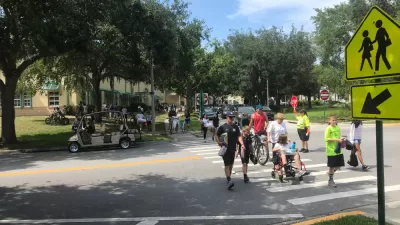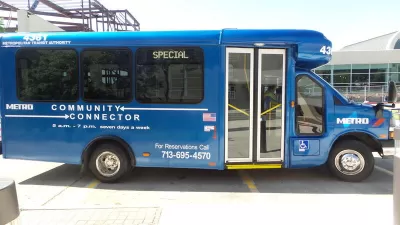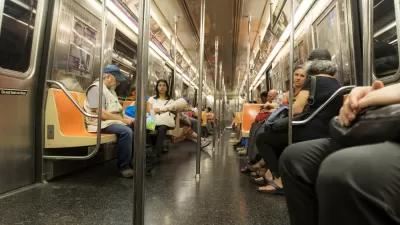Policymakers and venture capital firms love the idea of Mobility-as-a-Service. The public hasn't proven as receptive, despite the willingness to download apps by the millions.

David Zipper writes on the stalled progress of Mobility-as-a-Service companies in capturing the hearts and minds of the world's commuters and movers.
Zipper defines Mobility as a Service (MaaS) as an online platform, usually an app, that allows users to choose from all available transportation modes.
Count Uber among the companies championing the idea of MaaS, and the market has been flooded with apps hoping to deliver on the concept: "MaaS’s most prominent champions have been a group of popular startups offering slick apps like Citymapper, Transit and MaaS Global (the company behind Whim)." Zipper also notes that cities as geographically disparate as Berlin and Louisville have gotten into the MaaS game.
The public has responded with interest from these efforts by the private and public sectors: "Millions of users across Europe, North America, and Asia have downloaded these apps, and venture capital firms endorsing their vision of a multimodal urban future have invested tens of millions of dollars."
But that interest is proving tentative and potentially temporary. "MaaS’s momentum ('MaaSmentum'?) is at risk of stalling," according to Zipper. "To date, MaaS companies have found limited traction among urban residents, even in favorable markets," according to Zipper."
The article includes a lot more detail about the challenges in building consumer preference and commercial traction for MaaS platforms.
FULL STORY: The Problem With ‘Mobility as a Service’

Alabama: Trump Terminates Settlements for Black Communities Harmed By Raw Sewage
Trump deemed the landmark civil rights agreement “illegal DEI and environmental justice policy.”

Study: Maui’s Plan to Convert Vacation Rentals to Long-Term Housing Could Cause Nearly $1 Billion Economic Loss
The plan would reduce visitor accommodation by 25% resulting in 1,900 jobs lost.

Why Should We Subsidize Public Transportation?
Many public transit agencies face financial stress due to rising costs, declining fare revenue, and declining subsidies. Transit advocates must provide a strong business case for increasing public transit funding.

Paris Bike Boom Leads to Steep Drop in Air Pollution
The French city’s air quality has improved dramatically in the past 20 years, coinciding with a growth in cycling.

Why Housing Costs More to Build in California Than in Texas
Hard costs like labor and materials combined with ‘soft’ costs such as permitting make building in the San Francisco Bay Area almost three times as costly as in Texas cities.

San Diego County Sees a Rise in Urban Coyotes
San Diego County experiences a rise in urban coyotes, as sightings become prevalent throughout its urban neighbourhoods and surrounding areas.
Urban Design for Planners 1: Software Tools
This six-course series explores essential urban design concepts using open source software and equips planners with the tools they need to participate fully in the urban design process.
Planning for Universal Design
Learn the tools for implementing Universal Design in planning regulations.
Smith Gee Studio
Alamo Area Metropolitan Planning Organization
City of Santa Clarita
Institute for Housing and Urban Development Studies (IHS)
City of Grandview
Harvard GSD Executive Education
Toledo-Lucas County Plan Commissions
Salt Lake City
NYU Wagner Graduate School of Public Service





























